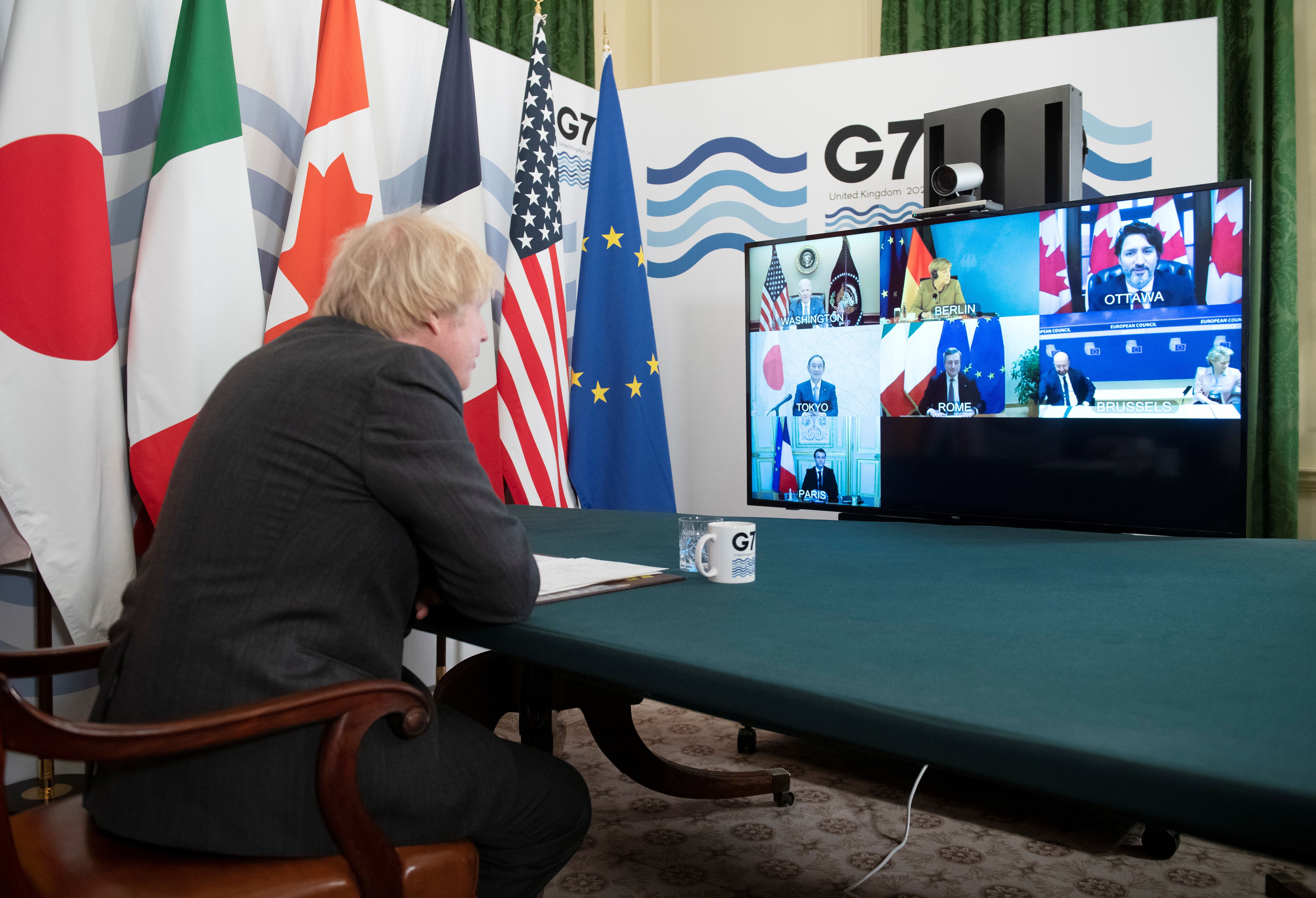G7 Leaders Meeting: Strengthening Cooperation on Health

What was the context of the meeting?
It was the first videoconference of the leaders of the G7 countries (the UK, U.S., Canada, France, Germany, Italy, and Japan) and the EU since April last year. It was organised by the UK, which is presiding over the group this year. It took place almost a year after the WHO declared the COVID-19 pandemic (March 2020), amidst still high infection rates in G7 countries, emerging new coronavirus mutations, persistent socio-economic problems, and difficulties in implementing vaccination programmes. It was the first multilateral meeting in which President Biden and Italian Prime Minister Mario Draghi took part. The Japanese prime minister, Yoshihide Suga (in office since September last year) also participated in the G-7 meeting for the first time.
What was agreed in fighting the COVID-19 pandemic?
The G7 countries took some important decisions. They announced the allocation of $4 billion to support the vaccine campaign in developing countries, including the COVAX programme (increasing their total contribution to $7.5 billion). They also agreed on the leading role of the WHO in combating the pandemic, which was the result of President Biden’s decision on the U.S. return to this organisation. The G7 is to support the WHO mainly in the production and distribution of vaccines against COVID-19. Group members announced, among others, that they will work with pharmaceutical companies to increase their production capacity, but they consider the licensing of vaccines to be voluntary. The leaders also want to work with other partners, including the G20, to counter potential future pandemics, including through the preparation of a global health treaty.
What has been agreed on economy and climate?
The G7 members mainly agreed on the continuation of actions already taken. They promised to continue supporting economies and protecting jobs during the pandemic. They spoke in favour of sustainable economic recovery and support for less-developed countries, including maintaining debt suspension. The G7 countries will also try to achieve by mid-2021 an agreement on international taxation within the OECD. In addition, they want to cooperate within the field of digital economy and WTO reform, however, they did not indicate concrete plans. They also did not refer to limiting trade protectionism. They stressed the crucial importance of climate protection in their activities, confirmed, among others, by the implementation of the Paris climate agreement (on the day of the meeting, the U.S. officially returned to this deal) and support for the COP26 climate summit in Glasgow scheduled for November this year.
What other topics were raised at the meeting?
G7 members expressed their readiness to cooperate with China in the economic sphere, but announced consultations on non-market activities, which was a reference to Chinese practices. Probably due to differences in the approach to China among the members of the group, the final statement of the meeting did not include criticism in relation to human rights violations in Xinjiang or Hong Kong. The British presidency said the leaders had condemned the military coup in Myanmar and the imprisonment of Alexei Navalny by the Russian authorities. However, no reference to these events was included in the joint statement, which could also indicate divergences within the G7. Group members also expressed their support for Japan in organising the Olympic and Paralympic Games in Tokyo this year.
Will the G7 turn into the D10?
The U.S. return to active multilateral cooperation means strengthening the G7 as a forum for coordinating action with some of its allies following tensions under Donald Trump's presidency. Moreover, Biden’s pointing to the need for closer cooperation between democratic states is in line with the UK’s postulate to extend the G7 to include three democracies—India, South Korea, and Australia—and the creation of the “Democratic 10” (D10) format. The leaders of the three countries were invited as guests to the June G7 summit in Carbis Bay, Cornwall. Enlargement of the G7 could increase the importance of the group in relation to, for example, the G20, and cover the Indo-Pacific region, which is crucial for world politics and economy. However, the creation of a permanent D10 format will be difficult, given, for example, the Japan-South Korea disputes or concerns that it would be seen as an anti-China initiative.


